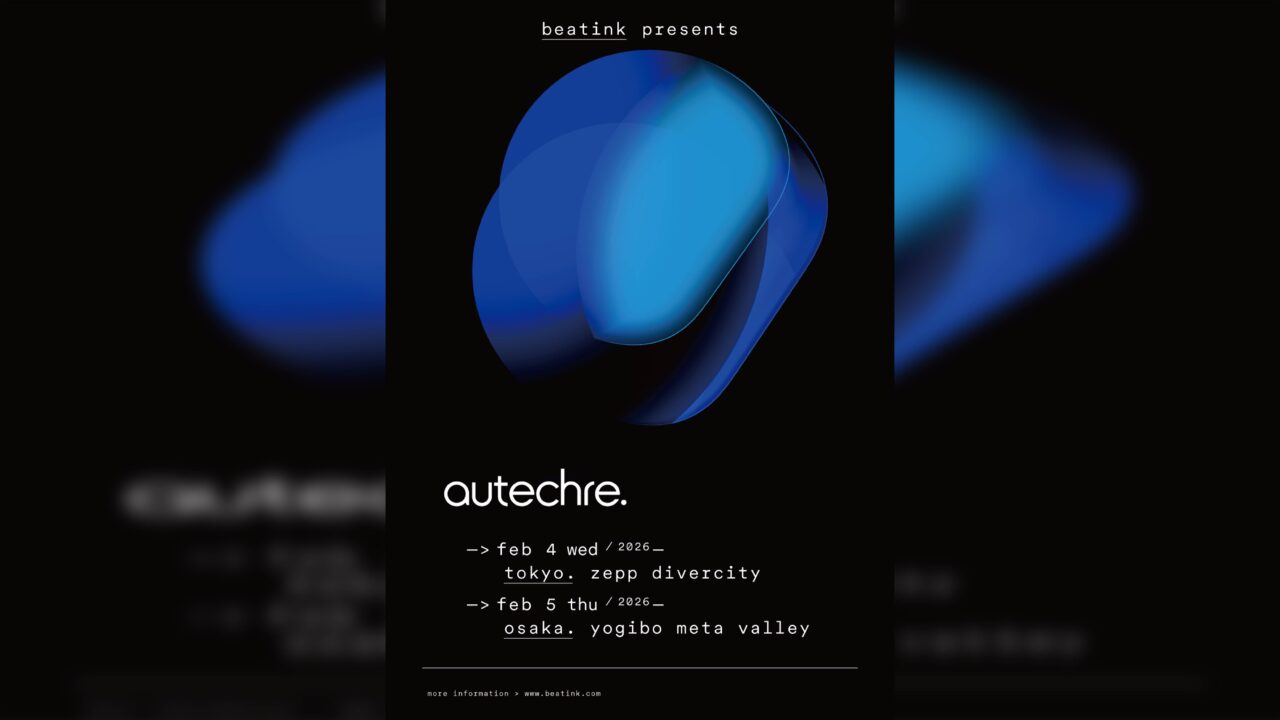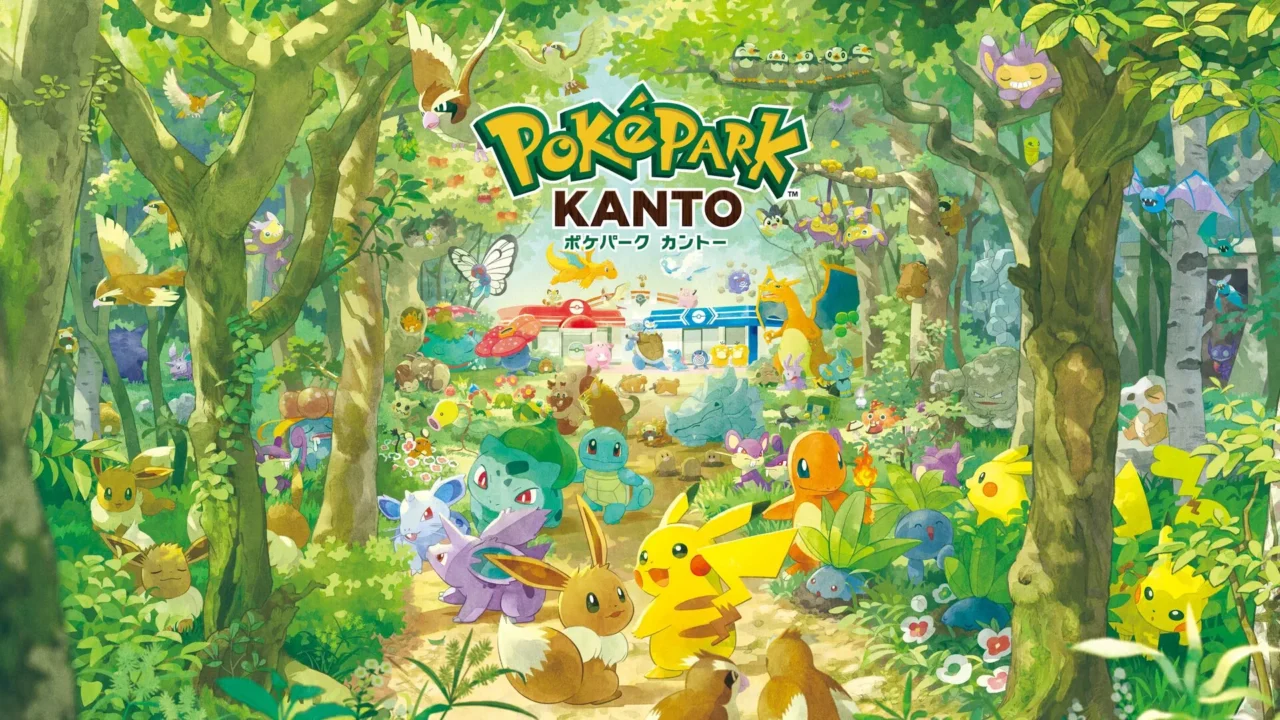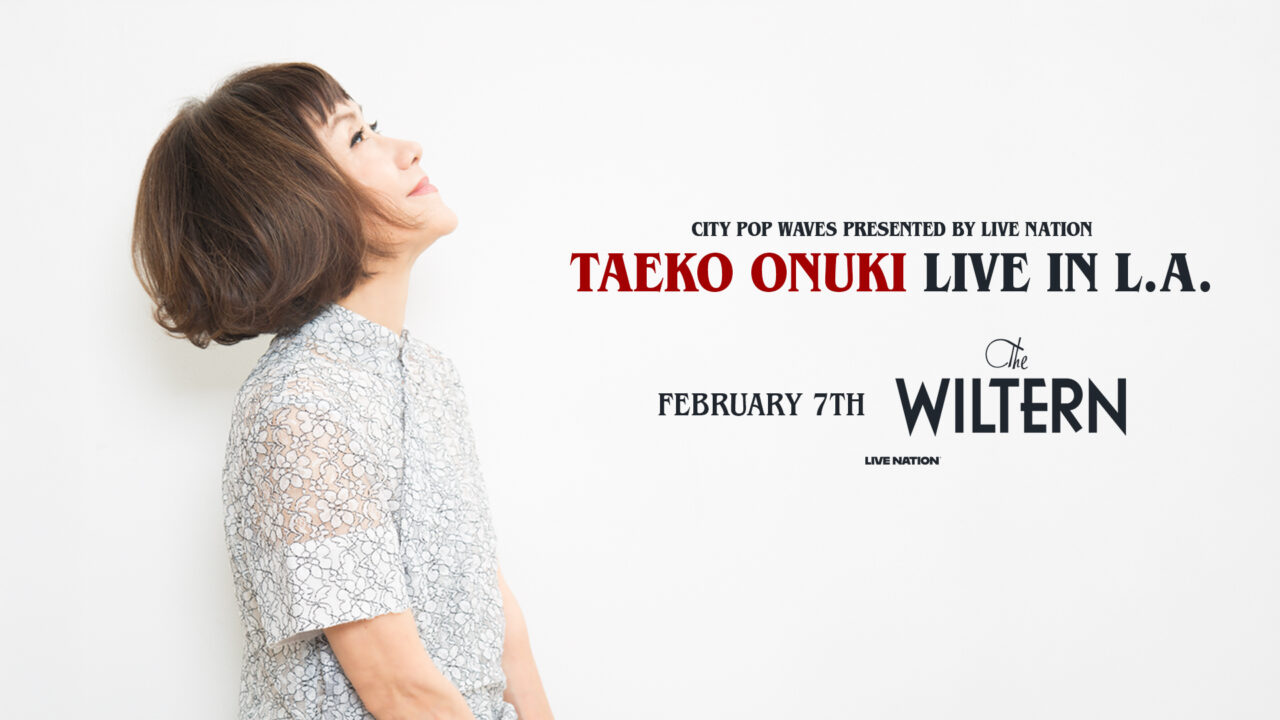Yuma Abe of never young beach embarked on his inaugural North American tour. Starting from Los Angeles’ San Diego and culminating in Brooklyn, New York, Abe traversed a dense schedule of approximately 2 weeks, covering 11 cities and performing 12 shows. Despite having held numerous tours domestically and even headlining major festivals, the band’s frontman found himself sharing dressing rooms, repeating the cycle of performances and travels daily. Abe’s drive to challenge himself was fueled by a sense of urgency to expand beyond Japan and a yearning for new, unexplored stimuli.
never young beach is celebrating its 10th anniversary this year. Since their debut in 2014, amidst the end of “Waratte Iitomo!” and the introduction of an 8% consumption tax, the band has steadily progressed while also experiencing member departures. What used to be cheerful lunch breaks have transformed into times of nitpicking others, as intolerance and efficiency-driven attitudes have proliferated in society. Consequently, as the consumption tax continued to rise, GDP plummeted, resulting in Japan slipping to fourth place in the world rankings.
In an era where cost-effectiveness is emphasized in everything, embarking on a tour across America in a short period, even at great effort, may seem outdated or lacking foreseeable returns. Nevertheless, Yuma Abe, who runs his own label “Thaian Records,” undertook this North American tour fully aware of the risks as a business owner. What he reaffirmed there was the necessity of “doing foolish things” and the potential as a “Japanese” artist.
INDEX
Connections with Overseas Audiences Fostered by Yuma Abe’s Pandemic-Era Solo Album “Fantasia”

Born in Tokyo in 1990. Started activities as a member of never young beach in 2014. Heavily influenced by Tokyo culture, including figures like Haruomi Hosono and the “Tora-san” film series starring actor Kiyoshi Atsumi. In 2021, he established his own label, “Thaian Records,” and released his debut solo album “Fantasia” in June. In May 2023, he released the EP “Surprisingly Alright” under Thaian Records / Temporal Drift (U.S). In February 2024, he embarked on his first-ever North American tour, covering 11 cities and 12 performances.
-First, please tell us about the first moment you became aware of overseas opportunities. When did you start considering performing live abroad?
Abe: I’ll turn 34 this year, but since my late twenties, I’ve had this vague sense of concern that if I were to continue making music only in Japan, it might lack freshness.
Although I’ve performed at events in Asian countries as never young beach, seeing Japanese musicians thriving all over the world excites me, and it makes me want to take on new challenges. There’s always been this sense of urgency, this feeling of “I need to do something.” Because of my tendency to compare myself to others, when I see Japanese artists performing live overseas, I feel a strong curiosity about it and think, “I want to try that too.” I didn’t know what would happen, but I wanted to take the plunge and give it a shot.
-Your first album under your solo name, “Fantasia,” was released in 2021. Please tell us about how you started making music under your solo name as well?
Abe: “Fantasia” was an album I made to help myself mentally during the COVID-19 pandemic, and the songs weren’t written with the intention of performing them. However, being followed by users from overseas on Instagram and receiving positive feedback on the album marked my first contact with an international audience. From there, I started making music with the overseas audience in mind.
-Through the releases under your solo name, it seems that the emotions you’ve harbored since your late twenties have become linked with the direction you aim to take as an artist, haven’t they?
Abe: I believe there’s a limit to the feeling of “as long as it’s enjoyable.” Music that’s just about “having fun with friends” tends to lack depth. It might depend on one’s mental state at the time, but music that shines usually involves dedication and obsession. For me, recognition from others serves as one motivation. It’s truly gratifying to be acknowledged. While I haven’t received much recognition overseas yet, since I make a living through music, it pushes me to think more about “how can I get more people to listen?” with a feeling of “let’s do this.”

-In 2023, your solo EP “Surprisingly Alright” was released on vinyl through Temporal Drift, an American label that also releases works by artists like Hiroshi Yoshimura and Les Rallizes Dénudés. How did that release come through this label?
Abe: Just before various countries went into lockdown due to the novel coronavirus, I visited the United States and was introduced to Yosuke Kitazawa of Temporal Drift through an acquaintance. During a meal together, I mentioned that I was working on a solo album, and after sending him the finished tracks later on, Kitazawa proposed the release. The trip wasn’t intended for this purpose, but I believed that making friends locally while directly visiting the United States would lead to something, so in hindsight, it turned out to be meaningful.
-The distribution of solo listeners on Spotify includes Los Angeles, Taipei, Brooklyn, and Chicago among the top cities, alongside Tokyo. Did you consciously engage with the staff of the American label to reach out to overseas audiences for worldwide distribution of your music?
Abe: Kitazawa, being from the label side, didn’t discuss much about live performances or production with me, but I learned that the way labels operate in Japan and America is completely different. In Japan, individuals often handle multiple roles, while in America, roles are clearly defined, and there are more people involved, which means money flows more efficiently. Regarding production, I also received advice on my music from another Japanese staff member based in America, whom I’ve known for a long time. He gives straightforward and simple feedback like, “I don’t quite get this,” [laughs]. But the process is really enjoyable and feels like a daily learning experience. Additionally, during this North American tour, I found many things that made sense through actual performances.

INDEX
Abe: Unexpectedly Interesting Outcomes Arise from Foolish Actions
-Due to the prevalence of streaming services, it’s not uncommon to have listeners worldwide. However, while the number of artists who have actually toured abroad has increased, it’s still relatively low. Given this situation, it’s understandable that touring is seen as risky.
Abe: Running my own label, I was fully aware of the hefty costs involved in this tour. With the support of various people, we managed to make this tour happen, but some might question the wisdom of spending so much money. However, unexpectedly Interesting Outcomes Arise from Foolish Actions.
-Not only in music, but in a society where productivity has become a yardstick and efficiency has become widespread, the hurdle to taking on challenges that may seem wasteful might be higher.
Abe: If you keep making excuses like “I don’t have money,” life will pass you by. I’ve been thinking about this since I turned 30. It’s like the age when professional soccer players start thinking about retirement. As a musician, I can still do it, but my body is starting to deteriorate, so I have this intense feeling of “how much longer can I keep performing live?”
I think now is the youngest we’ll ever be, and if you feel inspired, there’s no time like the present. Otherwise, nothing will ever change. I’m not the type to mope around, so I’d rather try something tomorrow and regret it than spend a year agonizing over it. I mean, that’s like wasting about 360 days. Trying it out will help me figure out if it’s right for me, and I can see the results. Spending time in indecision is a huge waste, so I believe that gradually taking action will lead to various improvements.

-In a sense, Japan, with its well-established social security system, may also be an environment where it’s relatively easy to take on challenges.
Abe: Japan has its flaws, but it also has systems in place where even if you’re on the brink of death, the country will help you out, right? It’s not like in America where you might actually die. We have insurance and welfare, so you can manage somehow. Being able to approach music with a light sense of “Well, I probably won’t die” might be significant.
INDEX
The Illusion of the “Rock ‘n’ Roller” Felt Through the Air of America
-Are there any other observations or feelings you had as a performer when experiencing the atmosphere and music culture of America?
Abe: If you have a loose and cool “rock ‘n’ roller” image of American artists, you shouldn’t take it at face value. Just having finished my first overseas tour, I realized they may seem laid-back, but in reality, they are very strategic and business-minded.
Any artists planning to go abroad should always think about what they are passionate about and what vision they have for their journey. It’s not a one-size-fits-all situation, but unless they collaborate with various people, including staff, they might hit a wall somewhere and lose motivation. Overseas tours require a lot of money, so even artists need to think about practical aspects. In Japan, there’s a kind system of salaries, but that can lead to situations where it’s difficult to take action on your own. Because there are fewer decisions to make on your own, some people might underestimate the importance of making choices. There may be side comments like, “You don’t need to do that,” or “Why bother?” Money and profitability are important, of course, but sometimes you need the audacity to ignore profitability and focus solely on what you want to do. It’s important to balance being a fool and being serious.

Photo by Asami Nobuoka
-I think your experience running your own label also contributed to those realizations.
Abe: I feel like the domestic scene has its set of things that sell. That seems to be the case in every country, right? While there are merits to such things, somehow I don’t feel like I can adapt to them. No matter how I try, I can’t create them. That’s why I believe I absolutely must diligently perform live abroad. Without expanding the audience, we can’t fully enjoy the benefits of streaming platforms, and relying solely on CD sales domestically is no longer feasible. It’s not an easy decision, but I think live performances abroad have become a norm as one of the options in today’s music landscape.
-Live performances in Japan, whether for bands or solo artists, tend to create a “homely” atmosphere where many fans gather. However, I believe this tour required captivating the audience from scratch, much like in the early days of debut. Were there any challenges or fresh experiences during this tour?
Abe: It was incredibly thrilling to perform live for an audience of strangers. While there’s certainly gratitude for those who already know my work with Neva Yan, there’s also a unique tension in performing for those who are unfamiliar with me. The excitement of being evaluated solely on my music by people who know nothing about me was palpable. The confidence born from the tension of being evaluated is crucial for me.

-I believe this tour served as a platform to demonstrate the hypothesis previously discussed: “Merely imitating Western styles won’t make Japanese artists stand out in the global scene. Incorporating Japanese identity becomes a strength.” Were there any significant gains or areas for improvement from this experience?
Abe: I was able to reaffirm that the quality of the music is what matters most, regardless of the language it’s sung in. American audiences simply seek out what they perceive as good. While I don’t believe I’ve completely proven myself in this regard yet, I feel it’s within my control.
One thing I reflected on is that many of the songs weren’t suited for live performances. Since “Fantasia” is primarily a mid-tempo album, performing it in Japan might have led to it feeling drawn out. However, this realization stemmed from having this album, and moving forward, I’d like to create works that can increase my fanbase in America as well, by making albums better suited for live performances and enjoyable for the audience.
– While it’s easy to lump places outside Japan together as simply “overseas,” in reality, I believe cities like Los Angeles and Chicago are entirely different. Did your impressions of the international audience change before and after the tour?
Abe: Every live house had its own unique charm and was interesting, but the enthusiasm of the audiences, particularly in Los Angeles and New York, was remarkable. I felt that cities tend to have a cultural environment closer to music, somewhat similar to Japan. The West Coast crowds were laid-back, and the music they were into had an indie vibe, reminiscent of venues like Basement Bar or Three in Shimokitazawa.
INDEX
Engaging the Audience: Crafting an Approach
-Did you notice any changes in performance between the first and last days of the tour? Did your approach to engaging the American audience evolve over the course of the tour?
Abe: It was interesting to see the reactions to upbeat songs at Japanese concerts sometimes being unexpectedly subdued, while there were moments when unexpected songs received a great response. Due to a shortage of songs, we performed “Natsu ga Sousaseta” by Neva Yan, which is a slower-paced song, during this tour. However, what stood out was that the audience there would cheer and get excited at the moments when the tempo changed within the song. It was a discovery of reactions opposite to those in Japan, which could influence future songwriting.

–Your work features a tropical sound with Japanese elements incorporated, and one can feel the influence of Haruomi Hosono. It’s cheerful yet somewhat exotic. How did the local audience react to such music? Were there people who came to the shows expecting music similar to that of Hosono?
Abe: During this tour, we covered Haruomi Hosono’s “Fuyu Goe,” and before performing it, I introduced it as, “Next is a cover of Haruomi Hosono’s ‘Fuyu Goe,'” and both older and younger audience members got really excited. There were even people shouting, “Haruomi Hosono!!!” [laughs]. When we performed in Lowell, a small town, we had the fewest audience members, around 30 or 40 people, but they bought a lot of merchandise. When I talked to an older gentleman at the venue, he said he found me on Spotify through Haruomi Hosono. He truly has an amazing influence.
-I believe it was a tight schedule, visiting 11 cities in 13 days. Were there any challenges during the tour?
Abe: The second and third days were the toughest for me. The schedule of performing 12 times in about two weeks was tight. Everything was different, and of course, I got nervous. There were days without a dressing room, and days where we shared one, so I couldn’t quite settle in because everything was unfamiliar. Since I don’t speak much English, I couldn’t laugh off mistakes in performance as I normally would, so at first, I kept telling the band members, “Please make no mistakes” [laughs].
– How did you get over it?
Abe: From around the fourth day, I started to enjoy myself. The schedule was so packed that I didn’t have time to feel like I was actually in America; all I could think about was leaving a lasting impression with great performances. Now that some time has passed, I find myself wanting to go back again, and I’m savoring the fun that comes from dealing with inconveniences. It was the first time I spent so much time with the support members, and I was nervous about it, but it turned out to be a great experience, including learning how to laugh off mistakes gradually. Every moment, even offstage, was spent thinking about the next show, so it was truly an intense time. I still remember feeling frustrated by the few audience members who seemed uninterested and thinking, “I’ll definitely do this again,” (laughs). Maybe this environment suited me because I’m the type who gets bored without a sense of tension or excitement.

-“The language barrier” is an unconscious embarrassment that Japanese people tend to feel, but music can overcome it. Did you experience moments where you felt the language barrier?
Abe: I find the language barrier intriguing because it highlights differences. In a country like America with various ethnicities and races, being Japanese by chance, I believe we have to leverage Japan’s strengths. I think there must be walls on their side too that they can’t overcome, precisely because there’s a barrier. When I asked DYGL’s Shimonaka (Yosuke) and kamoto (Kohei), who usually sing in English, for their honest opinions, they said, “it’s totally fine” about singing in Japanese. When you fit Japanese words into musical notes, it’s easy for songs to sound similar, but I realized that depending on the approach, Japanese could work just as well.

























